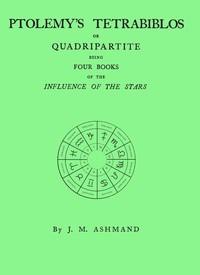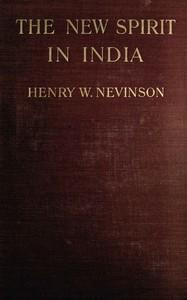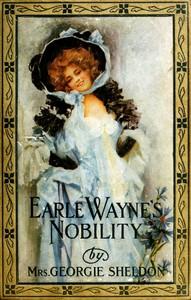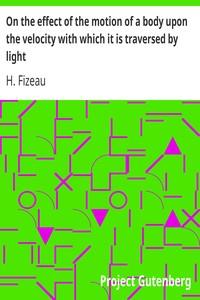|
|
Read this ebook for free! No credit card needed, absolutely nothing to pay.Words: 92505 in 25 pages
This is an ebook sharing website. You can read the uploaded ebooks for free here. No credit cards needed, nothing to pay. If you want to own a digital copy of the ebook, or want to read offline with your favorite ebook-reader, then you can choose to buy and download the ebook.

: Ptolemy's Tetrabiblos by Proclus Adapter Ptolemy Ranger Philip Active Other Ashmand J M Translator - Astrology Early works to 1800@FreeBooksThu 08 Jun, 2023 PREFACE Of all sciences, whether true or false, which have at any time engaged the attention of the world, there is not one of which the real or assumed principles are less generally known, in the present age, than those of Astrology. The whole doctrine of this science is commonly understood to have been completely overturned; and, of late, people seem to have satisfied themselves with merely knowing the import of its name. Such contented ignorance, in persons, too, sufficiently informed in other respects, is the more extraordinary, since Astrology has sustained a most conspicuous part throughout the history of the world, even until days comparatively recent. In the East, where it first arose, at a period of very remote antiquity, and whence it came to subjugate the intellect of Europe, it still even now holds sway. In Europe, and in every part of the world where learning had "impress'd the human soil," Astrology reigned supreme until the middle of the 17th century. It entered into the councils of princes, it guided the policy of nations, and ruled the daily actions of individuals. All this is attested by the records of every nation which has a history, and by none more fully than by those of England. Yet, with these striking facts before their eyes, the present generation seem never, until now, to have inquired on what basis this belief of their forefathers was established, nor by what authority the delusion could have been for so many ages supported. Among a thousand persons who now treat the mention of Astrology with supercilious ridicule, there is scarcely one who knows distinctly what it is he laughs at, or on what plea his ancestors should stand excused for having, in their day, contemplated with respect the unfortunate object of modern derision. Again, in p. 327: "The practice of observing the stars began in AEgypt in the days of Ammon, as above, and was propagated from thence, in the reign of his son Sesac, into Afric, Europe, and Asia, by conquest; and then Atlas formed the sphere of the Libyans" , "and Chiron that of the Greeks ; and the Chaldaeans also made a sphere of their own. But astrology was invented in AEgypt by Nichepsos, or Necepsos, one of the Kings of the Lower AEgypt, and Petosiris his priest, a little before the days of Sabacon, and propagated thence into Chaldaea, where Zoroaster, the legislator of the Magi, met with it: so Paulinus; The arcana of Astrology constituted a main feature in the doctrines of the Persian Magi; and it further appears, by Newton's Chronology, p. 347, that Zoroaster lived in the reign of Darius Hystaspis, about 520 B.C., and assisted Hystaspes, the father of Darius, in reforming the Magi, of whom the said Hystaspes was Master. Newton adds, p. 352, that "about the same time with Hystaspes and Zoroaster, lived also Ostanes, another eminent Magus: Pliny places him under Darius Hystaspis, and Suidas makes him the follower of Zoroaster: he came into Greece with Xerxes about 480 B.C., and seems to be the Otanes of Herodotus. In his book, called the Octateuchus, he taught the same doctrine of the Deity as Zoroaster." ++This caliph reigned in the earlier part of the 9th century, and caused Ptolemy's Great Construction to be translated into Arabic, as hereafter mentioned. +++This seems to be a mistake of the Arabian author, for Gushtasp was identical with Darius Hystaspis, and Lohrasp was father of Darius the Mede, who was overcome by Cyrus, 536 B.C.--See Newton. The general want of information on these points, and the indifference with which such want has been hitherto regarded, cannot surely be attributed solely to the modern disrepute of the science; for mankind have usually, in every successive age, exercised great industry in tracing all previous customs, however trifling or obsolete, and in examining all sorts of creeds, however unimportant or erroneous, whenever there has appeared any striking connection between such matters and historical facts; and, since astrology is most unquestionably blended intimately with history, it therefore becomes necessary to seek for some further hypothesis, by which this ignorance and indifference may be accounted for. The words "professed adversaries," which have just now been used, are of course not intended to be applied to those mighty explorers of Nature's laws and man's powers, who, in their lofty career, may have made an incidental swoop at the pretensions of astrology. Directly engaged in more exact pursuits, they stopped not to dissect this their casual prey, which, after having been thus struck by eagles, was left to regale crows and daws, and these, in their convivial loquacity, accused their unfortunate victims of crimes incapable of being committed, and of offences which had never been imagined. Of the real faults of their victim these garrulous bipeds seem not to have been aware, or, if aware, they seem to have considered them as not sufficiently prominent. Nor was this want of candour or information absolutely confined to the mere vulgar herd of vituperative scribblers, for even the sparkling essay against astrology, written by Voltaire , proves only that the writer, though the most generally informed man of his time, had mistaken the really assailable points of the object of his attack. To this view of the case, the following remarks seem not inapplicable: they are taken from a periodical work of deserved reputation:-- +"Sir Christopher Heydon's Defence of Astrology, p. 2, edit. 1603." In executing here the desire of attempting to vindicate the ancient credence in astrology, an elaborate disquisition would surely be not only unnecessary, but misplaced: it seems sufficient to refer the reader to the work of which the following is a translation, and to these undisputed facts--that the science was formerly inculcated by the highest and most erudite authorities of the period--that it was insisted on by votaries in all parts of the world, attesting and producing instances of its truth;--and, moreover, that it was so finely and beautifully put together, as to cause the only deficiency of one small, though most important, link in its whole chain of argument, to be undetected by dull minds, and readily supplied by enthusiastic genius. For centuries after centuries all branches of learning were either made subservient to astrology, or carried on in close alliance with it; and many of the illustrious names which it recalls to our recollection are gratefully reverenced even by modern science. The genius of Roger Bacon, although he was the first of that school of natural philosophy which acknowledges none but experimented truths, was nevertheless bowed to the doctrines of judicial astrology; and his greater Namesake, who after an interval of several centuries succeeded to him in giving proper direction to the mental energy, was still an arguer in favour of celestial influences: it may be, therefore, fairly inferred, that the subtle spell which had strength to enthrall "stuff" so "stern," could have been of no weak or vulgar order, but that it was sufficiently potent and refined to interest and amuse even the present age. "Certainly, if man may ever found his glory on the achievements of his wisdom, he may reasonably exult in the discoveries of astronomy; but the knowledge which avails us has been created solely by the absurdities which it has extirpated. Delusion became the basis of truth. Horoscopes and nativities have taught us to place the planet in its sure and silent path; and the acquirements which, of all others, now testify the might of the human intellect, derived their origin from weakness and credulity" . Again; "Astrology, like alchymy, derives no protection from sober reason; yet, with all its vanity and idleness, it was not a corrupting weakness. Tokens, predictions, prognostics, possess a psychological reality. All events are but the consummation of preceding causes, clearly felt, but not distinctly apprehended. When the strain is sounded, the most untutored listener can tell that it will end with the key-note, though he cannot explain why each successive bar must at last lead to the concluding chord. The omen embodies the presentiment, and receives its consistency from our hopes or fears." . It may, perhaps, be difficult to assent to all of the propositions involved in these extracts; but there are among them some which are clearly unquestionable. Free books android app tbrJar TBR JAR Read Free books online gutenberg More posts by @FreeBooks
: A godly medytacyon of the christen sowle concerninge a loue towardes God and hys Christe by Marguerite Queen Consort Of Henry II King Of Navarre Bale John Editor Elizabeth I Queen Of England Translator - Devotional literature; Meditations Early works to 18@FreeBooksThu 08 Jun, 2023

: The new spirit in India by Nevinson Henry Woodd - India Description and travel; India Politics and government 1765-1947@FreeBooksThu 08 Jun, 2023
|
Terms of Use Stock Market News! © gutenberg.org.in2025 All Rights reserved.






